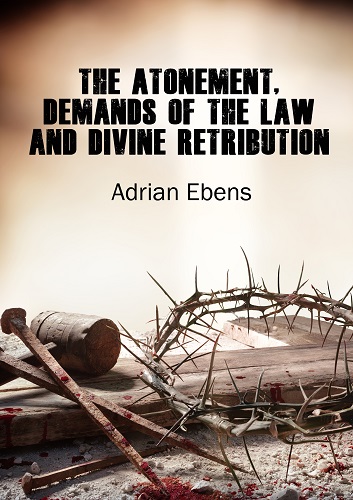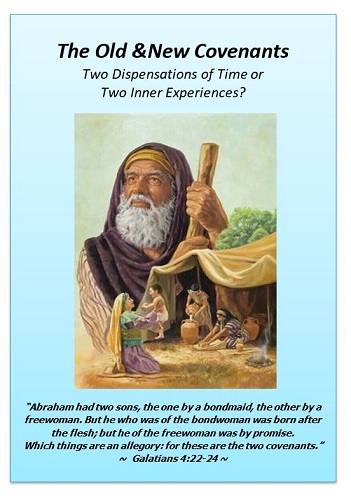The Ukraine, the Mennonites, and the Faith of Jesus
6 months into the Russia-Ukraine War, its repercussions continue to dominate the news cycle. One global effect is rising food prices, causing increased hardship particularly in poorer countries that rely on wheat. The Ukraine is considered the ‘breadbasket of Europe’, and there has been much negotiation to lift the Russian blockade of Ukrainian food One might ask why the Ukraine is regarded as such an important food and raw-material producer today; the answer to this question might surprise you.
The story starts with the Mennonites, an branch of the Christian Anabaptists from northern Germany and the Netherlands, whose main leader was Menno Simons, from which the movement borrowed its name. The Mennonites preached faith in Jesus, re-baptism, non-violence and the separation of Church and State; and were seen as more radical than other Protestants and were relentlessly persecuted. The Mennonites, differently from their fellow Anabaptists, the Münsterites, believed strongly in Jesus’s word to “turn the other cheek” once inflicted with persecution. This Dutch Wiki article about the Mennonites says that a large number of the Dutch/Northern German Mennonites eventually migrated to East-Prussia/Poland in the 1500's because of religious persecution in the Netherlands and Northwestern Germany. When assaulted, the Mennonites used to “turn and flee” rather than recompensing violence with violence.
Furthermore, the article also says that Tsarina Katherine the Great, in her *Manifesto* of July 1763, invited settlers from Germany and Poland (among them the Mennonites) to settle in the newly conquered territory north of the Sea of Azov (southern Ukraine). The article then quotes something curious:
"The hard-working Mennonites turned the savage and neglected lands of the steppes into fertile farmland. Southern Russia thus became known as 'the breadbasket of Europe'" [Dyck, Johannes, Mennonieten in hun nieuwe moederland: Rusland]
They worked the land for a hundred years, and their commitment to their own culture and religion was shown in that they mostly never learned Russian. Most of the Mennonites left in the late 1800s and early 1900s, as there community was troubled by increasing Russian Nationalism and then the Bolshevik Revolution.
As nationalism grew in central Europe, the Russian government could no longer justify the special status of its German colonists. In 1870 they announced a Russification plan that would end all special privileges by 1880. Mennonites were particularly alarmed at the possibility of losing their exemption from military service and their right for schools to use the German language, which they believed was necessary to maintain their cultural and religious life.
The most conscientious Mennonites could not accept any form of service that supported making war, prompting their community leaders to seek immigration options. In 1873 a delegation of twelve explored North America, seeking large tracts of fertile farmland.
Realizing that 40,000 of Russia's most industrious farmers were preparing to leave for North America, the Russian government sent Eduard Totleben to the colonies in May 1874. Meeting with community leaders, he exaggerated the difficulties that would be encountered in North America and offered an alternative national service that would not be connected in any way to the military. His intervention convinced the more liberal Mennonites to stay.(Russian Mennonite Wikipedia)
The hard years of Stalin and collectivization of land ended this community in Ukraine, but the legacy of their farming remained. It is in huge part due to the the constructive influence of the peace keeping, God-fearing, Protestant Mennonites that Ukraine became such a huge agricultural center, producing 25% of all agricultural output in the former Soviet Union.
This reminds me of the Waldensians in the Piedmontese valleys, whom, while fleeing persecution of the Savoyard armies, sought refuge in the wilderness, and (as the Mennonites) were able to turn savage and neglected lands into fertile farmlands with the help of the Almighty. About the Waldenses, the Mennonite Confession of Faith of 1659 tells us:
“When the Papists ask us where our religion was before Luther, we generally answer, In the Bible, and we answer well. But, to gratify their taste for tradition and human authority, we may add to this answer, and in the valleys of Piedmont.” [The Mennonite Confession of Faith].
Anabaptists, Baptists, and Mennonites, all identified the Waldenses as their spiritual ancestors.
The Dutch reformer Menno Simons and his followers were very close to the understanding of the Character of God (non-violent) and Only True God (Father-Son) messages we advocate for in the present day; about the letter, here is a quote from the magazine 'Christianity Today' about Menno Simons:
"[...] though he defended the doctrine of the Trinity in a small book, he refused to use the term because it did not appear in Scripture."
[https://www.christianitytoday.com/history/people/denominationalfounders/menno-simons.html].
Besides that, the Mennonite Confession of Faith lists 33 Articles, which begin with “The unity of God and Sonship of Jesus Christ”. The second article deals with “The Eternal Birth and Godhead of the Son of God, and His Divine Attributes”. Regarding the second article, the Mennonite Confession of Faith declares:
“of the eternal birth and Godhead of the only begotten Son of God, we believe, That the Son of God, from all eternity, came forth, was born, and in an ineffable manner proceeded forth from the true God, his Father; of the same nature, essence and substance with the Almighty God. A light from the true light. Truly God from the true God. Who being in the form of God, the brightness of his glory, and the express image of his person. For, as the stone which was cut out of the mountain without hands, and became a great mountain that filled the whole earth, is of the same substance the mountain from which it was taken; so also is the elect corner-stone, Jesus Christ, the only begotten Son of God, the same in his being and substance; co-equal, co-eternal with the Almighty Father, who is the mountain and rock of ages.” [The Mennonite Confession of Faith, P.J. Twisck, 1617 - Oldest Mennonite Confession consisting mostly of the words of Menno Simmons].
Pastor Gary Hullquist from Talking Rock Sabbath Chapel, about the Mennonite Confession of Faith, declares:
“The Mennonite Confession is the only creedal statement that is known to recognize the example of Daniel 2 in explaining the inheritance of divine substance. With it, a stream of Bible truth flowed from the churches of Asia, East and West, pursued by the dragon into the wilderness of Europe, for over 1,000 years.”
The Mennonite principle of Christian-pacifism also points to us a singular and unique understanding of the Non-Judgmental Character of God. The Dordrecht Confession of Faith (a statement of religious beliefs adopted by Dutch Mennonite leaders at a meeting in Dordrecht, Netherlands, on April 21, 1632) contains 18 articles, the fourteenth article, named “Of Revenge” upholds:
XIV. Of Revenge
As regards revenge, that is, to oppose an enemy with the sword, we believe and confess that the Lord Christ has forbidden and set aside to His disciples and followers all revenge and retaliation, and commanded them to render to no one evil for evil, or cursing for cursing, but to put the sword into the sheath, or, as the prophets have predicted, to beat the swords into ploughshares. Matt. 5:39, 44; Rom. 12:14; I Pet. 3:9; Isa. 2:4; Micah 4:3; Zech. 9:8, 9.
From this we understand that therefore, and according to His example, we must not inflict pain, harm, or sorrow upon any one, but seek the highest welfare and salvation of all men, and even, if necessity require it, flee for the Lord's sake from one city or country into another, and suffer the spoiling of our goods; that we must not harm any one, and, when we are smitten, rather turn the other cheek also, than take revenge or retaliate. Matt. 5:39.
And, moreover, that we must pray for our enemies, feed and refresh them whenever they are hungry or thirsty, and thus convince them by well-doing, and overcome all ignorance. Rom. 12:19, 20.
Finally, that we must do good and commend ourselves to every man's conscience; and, according to the law of Christ, do unto no one that which we would not have done to us. II Cor. 4:2; Matt. 7:12. [Dordrecht Confession of Faith (1632), article XIV. Of Revenge]
May the Lord help us live like these faithful believers; may we seek to know God and do His commandments. We can be sure that if we put God and His Laws first, every other thing shall be added unto us, Matthew 6:33 “But seek ye first the kingdom of God, and his righteousness; and all these things shall be added unto you”.
For more info on another group of Russia adherents of Christian Non-Violence/Non-Resistance, see Alex's article on the Doukhobors:
https://maranathamedia.com/article/view/thou-shlat-not-kill-doukhobors-story
Vitor is from Brazil. For books in Portuguese, see https://paidoamor.com/ For books in Russian, see https://maranathamedia-russia.com/





_A4_w-cover_Page_011.jpg)